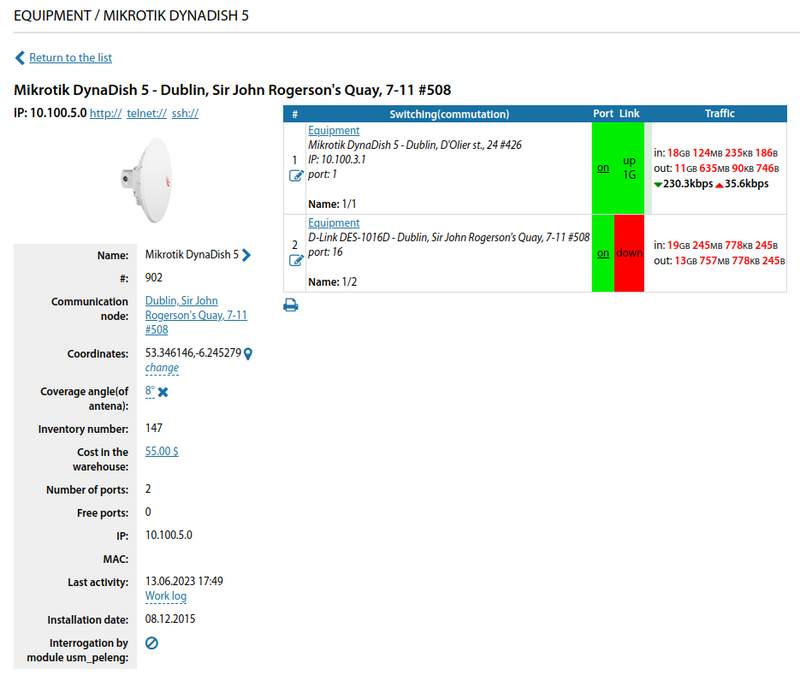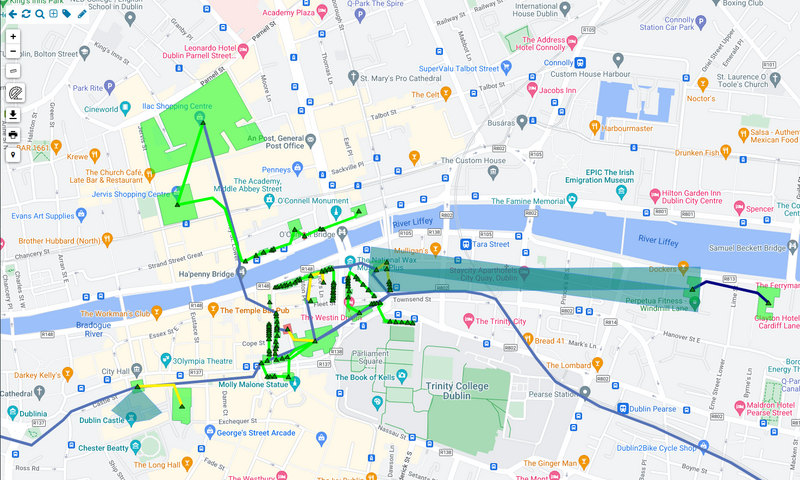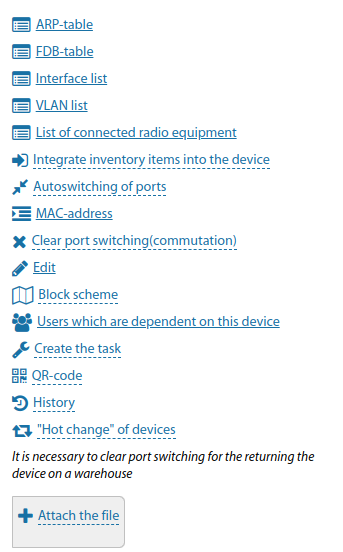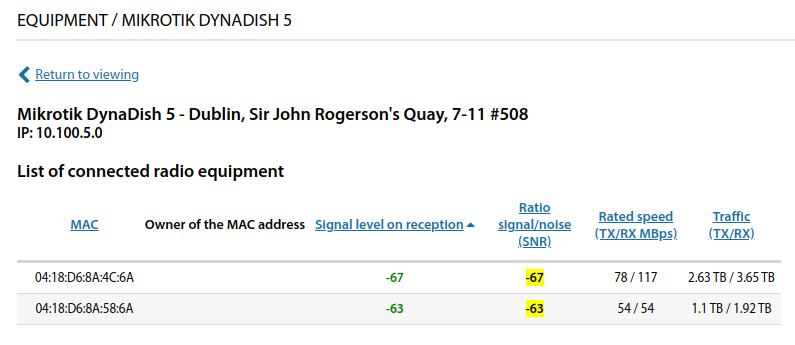Radio: различия между версиями
Нет описания правки |
Нет описания правки |
||
| Строка 6: | Строка 6: | ||
For each radio unit, you can specify the opening angle, direction and range of the signal. | For each radio unit, you can specify the opening angle, direction and range of the signal. | ||
[[Файл:|thumb|800px|center]] | [[Файл:2023-06-13_17-57.png|thumb|800px|center]] | ||
This makes it possible to see the actual radio coverage situation on the [[Coverage maps| coverage map]]. | This makes it possible to see the actual radio coverage situation on the [[Coverage maps| coverage map]]. | ||
[[Файл:|thumb|800px|center]] | [[Файл:2023-06-13_17-56.png|thumb|800px|center]] | ||
For base stations produced by MikroTik it is possible to retrieve data on connected radio users. | For base stations produced by MikroTik it is possible to retrieve data on connected radio users. | ||
[[Файл:|thumb|800px|center]] | [[Файл:2023-06-13_17-57_1.png|thumb|800px|center]] | ||
[[Файл:|thumb|800px|center]] | [[Файл:2023-06-13_17-59.png|thumb|800px|center]] | ||
Версия от 15:02, 13 июня 2023
Information about equipment accounting is contained in a separate section Radio equipment.
The equipment card displays the coordinates of the location of the BS in the angular and decimal coordinate system (the coordinates are taken from the Node location data). For each radio unit, you can specify the opening angle, direction and range of the signal.

This makes it possible to see the actual radio coverage situation on the coverage map.

For base stations produced by MikroTik it is possible to retrieve data on connected radio users.

